Are you moving? What to know to protect your belongings and have a smooth experience
After 25 years in their Long Island, New York, house, Michael and Deirdre Kupka decided to move to Charleston, South Carolina, to be closer to their youngest grandchildren.
The lifelong New York residents thought they did everything right when shopping for a mover for their life’s belongings, including a large number of family antiques.
But instead of a smooth moving experience out of their four-bedroom house, the Kupkas’ move is a cautionary tale for others to protect themselves. Many pieces of their antique furniture were cracked or severely damaged and the couple had to pay nearly $5,000 above their original agreement when the moving company refused to deliver their furniture, instead drastically changing the price from their original “flat-rate booking" fee.
Since the couple refused to sign a document presented by the moving company after they saw all the damage to their furniture, the movers are now saying they have no claim to insurance to cover what the Kupkas estimate would take thousands of dollars to fix and refurbish.
Though USA TODAY made multiple attempts to reach the Kupkas' moving company, and it said via email that it would respond, USA TODAY never received a comment.
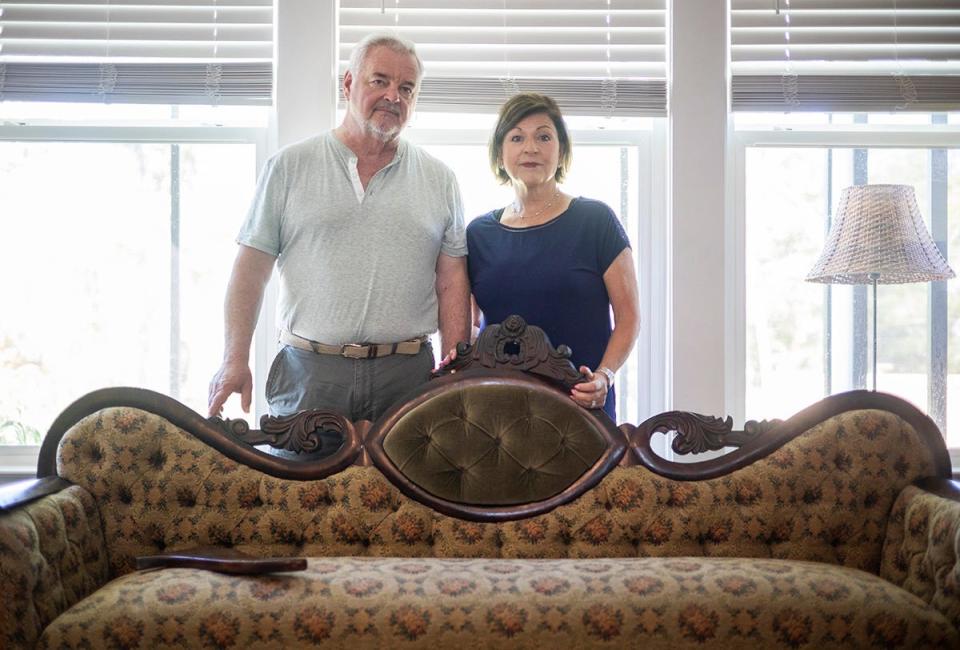
How to find a good mover
May is not only National Moving Month, it’s also the start of the busy summer moving season, said Ryan Bowley, the American Trucking Associations’ moving and storage executive director.
Most moving companies book 70% of their business between May and September, said Bowley. The trucking association is the largest national trade association for the trucking industry with more than 34,000 trucking and moving company members.
While a majority of those moves go smoothly and most professional moving companies are reputable, consumers do run into problems, he said,
More than 6,200 complaints were filed with the Federal Motor Carrier Safety Administration’s National Consumer Complaint Database in 2023. It is important to properly research a moving company, make sure you have a contract and understand your rights, said Bowley. The complaint database also has educational information on its website, www.protectyourmove.gov
There are unscrupulous companies who bait and switch consumers with low-ball estimates, then raise the prices, holding furniture until consumers pay, in what the industry calls a "hostage shipment." he said. Some scammers never deliver the goods and instead auction them off, he added.
There are also fraudulent companies that put up fancy websites or use a name that is similar to a long-standing, reputable company, posting what looks like legitimate reviews and endorsements, Bowley said.
But “if you look a little bit closer ... it doesn’t quite look right,” he said. Photos of trucks may be photoshopped or the promises by the company don’t line up with standard practices of reputable businesses, Bowley said.
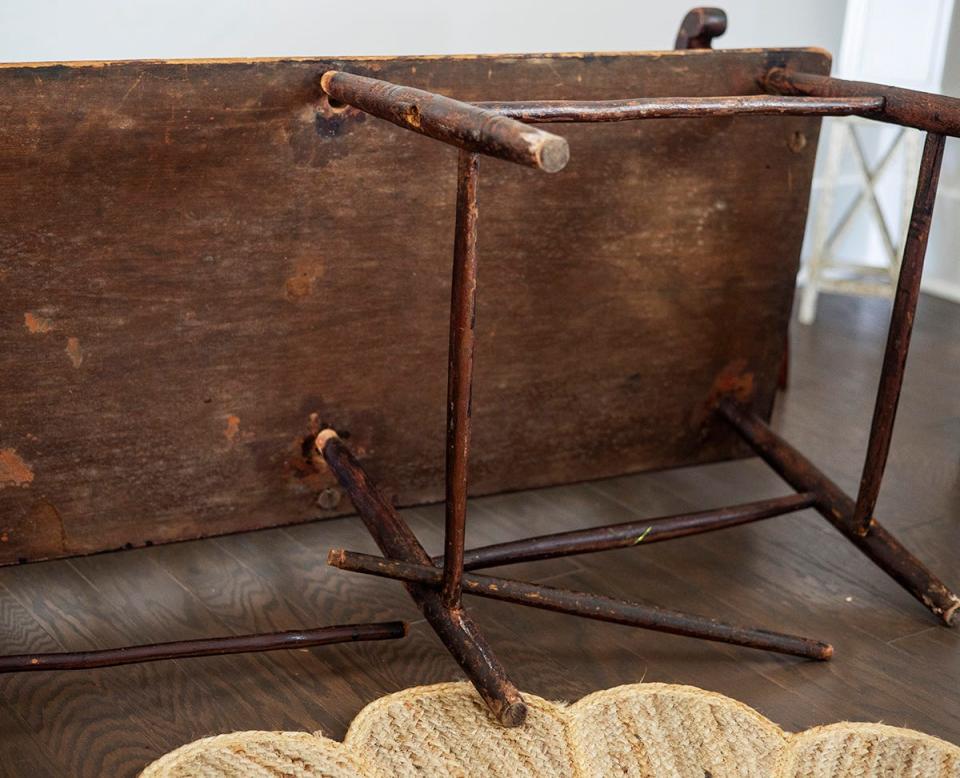
Any company that moves goods over state lines must have a registration number with the Department of Transportation. That can be found on the www.protectyourmove.gov site, said Bowley.
Bowley said it did not appear that the Kupka’s moving company, Call My Mover, was registered with the DOT.
What happened to the Kupkas?
The Kupkas had a short window of time to coordinate the closing dates of their New York house and one being built in South Carolina. They were looking for a company that could store their furniture on the truck and not mingle their goods with those of another family.
They called four moving companies. Michael Kupka also received a cold call from a local moving company, Call My Mover.
Michael said he assumed the company got his contact information from listings of recent home sales.
The moving estimates from the other companies were about $13,500 while Call My Mover came in with a “flat booking price” of $8,603.75 after a salesperson came out to the house to see their belongings.
While price played a role in choosing the company, Deirdre said, it wasn’t the only reason.
The other movers said the couple would have to pay for storage while Call My Mover said it would be free and they did not need an exact closing date. The movers also said they would wrap all of the couple’s fragile mirrors and pictures.
“It sort of all fell into place with this wonderful salesman that we had with Call My Mover,” Deirdre Kupka said. “Everything I asked him, he said yes, and I believed him.”
The Kupkas now say they should have done some internet research on the company. They would have seen negative customer reviews and an F rating with the local Better Business Bureau for Call My Mover in Plainview, New York, which also does business as Tri-State Relocation Inc.
“That would be the first thing I would tell everybody,” Michael Kupka said. “These people prey mainly on older people that don’t have the knowledge of going on the internet and investigating these people.”
He also went to the office of the local mover twice to pick up boxes and sat down with the owner, who said “don’t worry about anything." That in-person connection helped him feel better about the upcoming move.
The couple agreed to use Call My Mover. They now know they didn’t sign a contract, but rather a spreadsheet of their home's contents that the salesperson put together.
What happened on moving day
When the foreman arrived on moving day, he said in 22 years, he’d never once had the quoted price be what the customer would ultimately pay. Usually, it was more, he said.
That was not what the Kupkas expected.
One of the movers also had Deirdre Kupka sign her name on a phone, saying it was to confirm the insurance plan she chose and that there were movers on site to complete the move. There was nothing for her to review, but with the stress of moving day, she signed.
By the end of the day, there would be two truckloads and a van that came for excess items though their original verbal agreement was that all of their belongings would be on one truck and not transferred,
“That’s when they started shoving things into the truck, which is when I’m sure half of it broke,” Deirdre Kupka said.
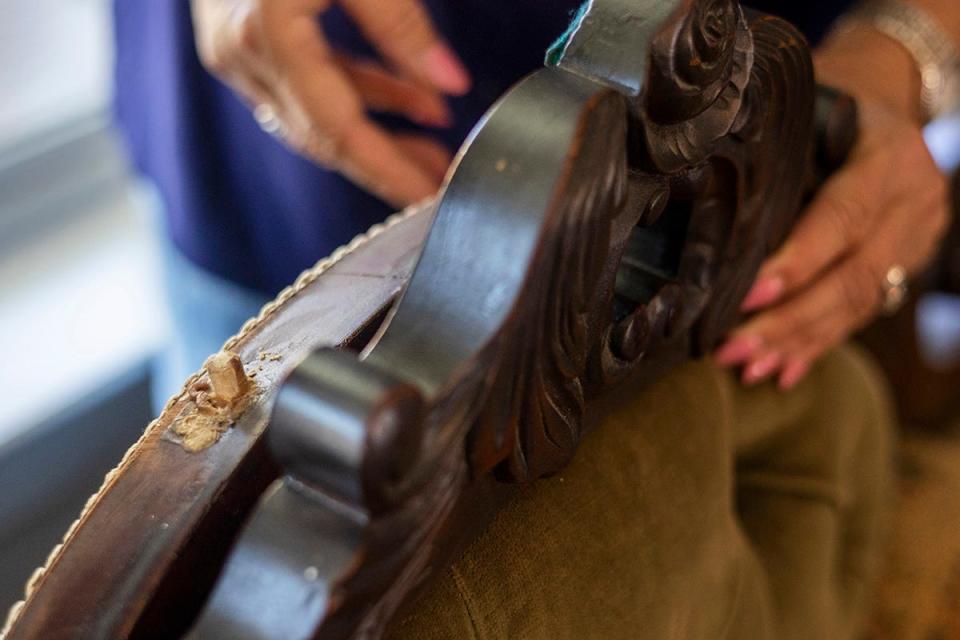
The foreman then showed her husband five written pages listing furniture not on the original spreadsheet. He signed but said there was no indication that there would be extra charges. The moving truck left.
A few days later as the truck was in transit, the Kupkas were told the new total was $13,763.59 – over $5,000 more than what the couple originally agreed to pay. They were also told the payment must be by certified check, not a credit card like the original $100 deposit the couple put down.
Michael Kupka argued with the company, saying he wanted to see a detailed report. He then received what he said were several threatening phone calls from the company saying the truck would not arrive unless the full amount was paid and that the truck’s driver would be told to return to New York with the Kupkas financially responsible for the fuel and additional storage.
The Kupkas finally gave the company a certified check for $885.85 as "a good faith gesture.” The company wasn't satisfied.
That evening, Michael Kupka said he got a phone call from a woman at the company using “language that a truck driver couldn’t even imagine.” She was upset that the full amount had not been paid. When he hung up, he was unsure if the truck would arrive the next morning.
It did, but the driver said he could not unload until the remaining $4,273.99 was paid.
The Kupkas were shown a contract with Deirdre’s signature on it, though she said the couple had never seen a copy of it. It also had a signature certifying “no damage had been done to any of the furniture.”
After more verbal threats during a phone call with the moving company, the couple felt they had no choice but to pay the money.
“They were holding our furniture hostage,” Deirdre Kupka said.
The furniture finally began to be unloaded, after about a 2 ½ hour delay. That's when she noticed that many of her family’s antique heirlooms were damaged.
“I’m crying because my antique furniture has got dents that it’s never had,” she said. Some furniture was more than 150 years old.
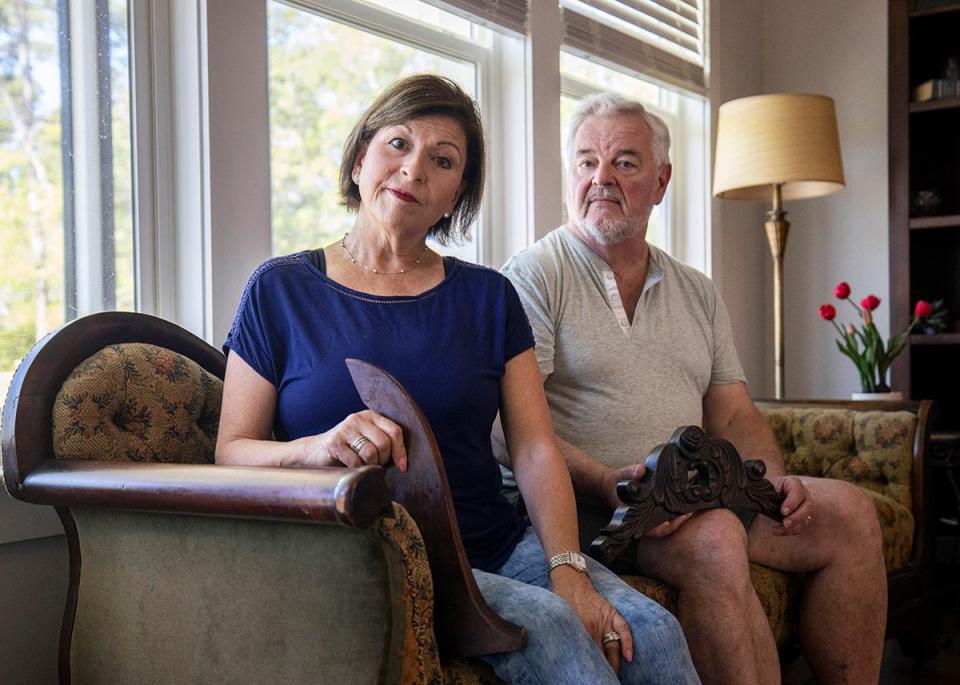
The damage included a China cabinet with the legs broken off and her dining room chairs, one of which was completely destroyed. A couch Deirdre's mother bought her at an antique store has broken legs and arms.
“You can’t sit on the couch on either end without it falling,” she said.
“Every single piece of furniture they packaged up had something wrong with it,” including screws loose, scratches, or broken," added Michael.
The driver wanted the Kupkas to sign a document after the truck was emptied, but they refused. They complained about the damaged items and the driver took pictures before leaving.
“There was too much emotion at that point to argue with him or do anything more,” Michael Kupka said.
An hour later, the Kupkas received an email saying since they refused to sign the document, they had no claim to the insurance they'd originally agreed to – $250,000.
Adult daughter tries to help resolve issues
The Kupkas' daughter, Rebecca Overton, tried to communicate with the company on behalf of her parents after she found out what happened.
The family has sent a letter from an attorney demanding the $5,159.84 they say they were forced to overpay and full reimbursement for their repairs or they will seek relief from the courts. The family has received no return communication.
How to make a safe move: Don't want to lug that couch down the stairs yourself? Here's how to find safe movers
Call My Mover did not respond with comment to three requests by USA TODAY. A phone message was left with an employee who answered the phone on a Tuesday and an email was sent. USA TODAY received a reply saying the company would respond by the end of the day Wednesday, but the company sent no follow-up to that email or another sent the following Monday.
The Kupkas don’t know how much the final cost to repair the damaged antiques will be, though they estimate it to be thousands of dollars. Deirdre Kupka said she has glued together as many of the cracked pieces as she can.
“A lot of this stuff is irreplaceable,” her husband said.
Housing report: Want to live near your state's top schools? Prepare to pay $300,000 more for your house.
Do your research before moving, couple advises
The Kupkas are the victims, said BBB spokeswoman Melanie McGovern.
“It sounds like they asked all of the questions they needed to ask, but they (the company) knew how to answer them” telling the Kupkas what they wanted to hear McGovern said.
“A lot of people would have been in the same situation," McGovern said.
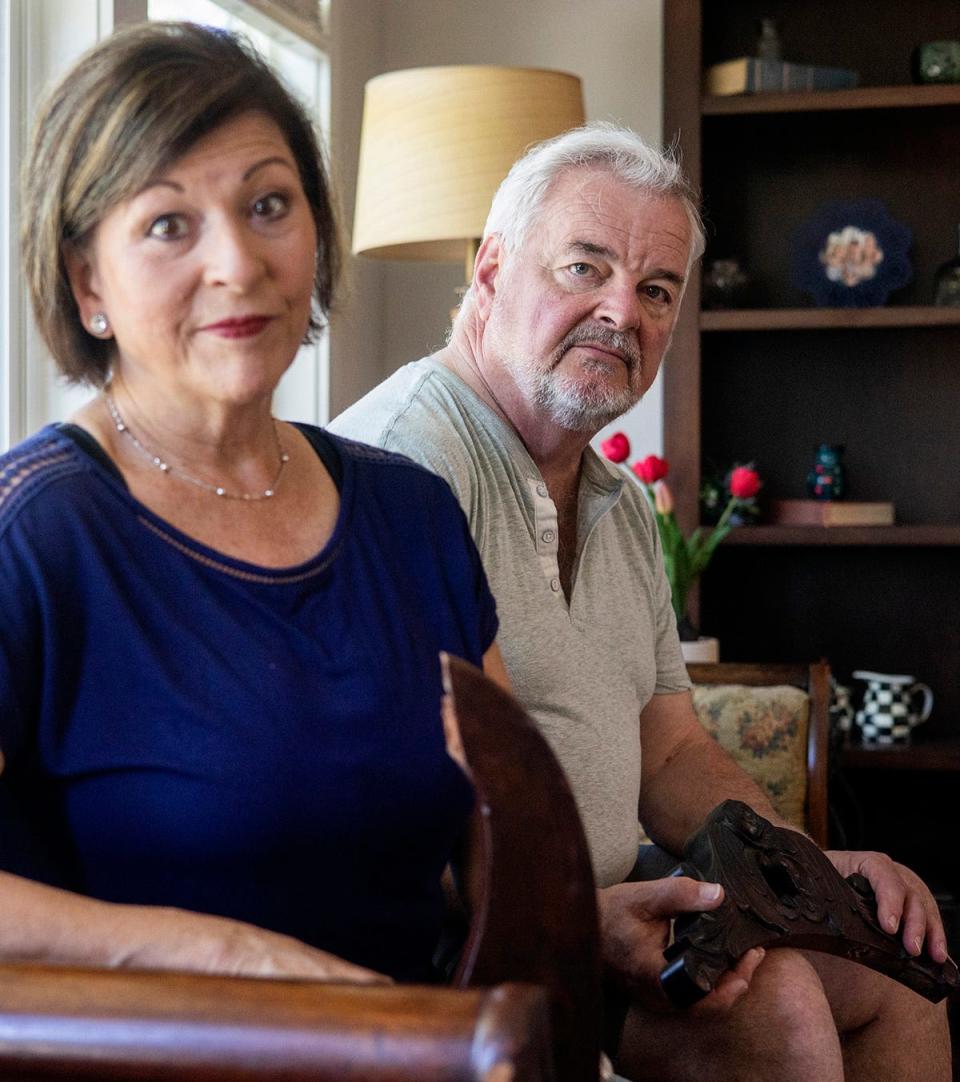
Neither Bowley nor McGovern had ever heard of a moving company cold-calling a new home seller. Both said that concerned them and they would be alerting their organizations about the potential new tactic.
The cold-calling itself isn’t troublesome, they said, unless the company is then not following up with good customer service. They worry that the practice could become like “storm chasers” who go door-to-door in neighborhoods after storms offering new roofs or “extra asphalt” and other materials and not providing consumers with quality workmanship.
It’s difficult once a move is happening to do much to resolve issues if things go south, said Bowley. Consumers who call the local police will probably be told it’s a contract dispute and something the police can’t intercede in, he said. Consumers would then need to go to the state attorney general or the Federal Motor Carrier Safety Administration.
So do your research and follow these tips before you make a deal, Bowley said.
Betty Lin-Fisher is a consumer reporter for USA TODAY. Reach her at blinfisher@USATODAY.com or follow her on X, Facebook, or Instagram @blinfisher. Sign up for our free The Daily Money newsletter, which will include consumer news on Fridays, here.
This article originally appeared on USA TODAY: Moving tips on what to know to protect your belongings

